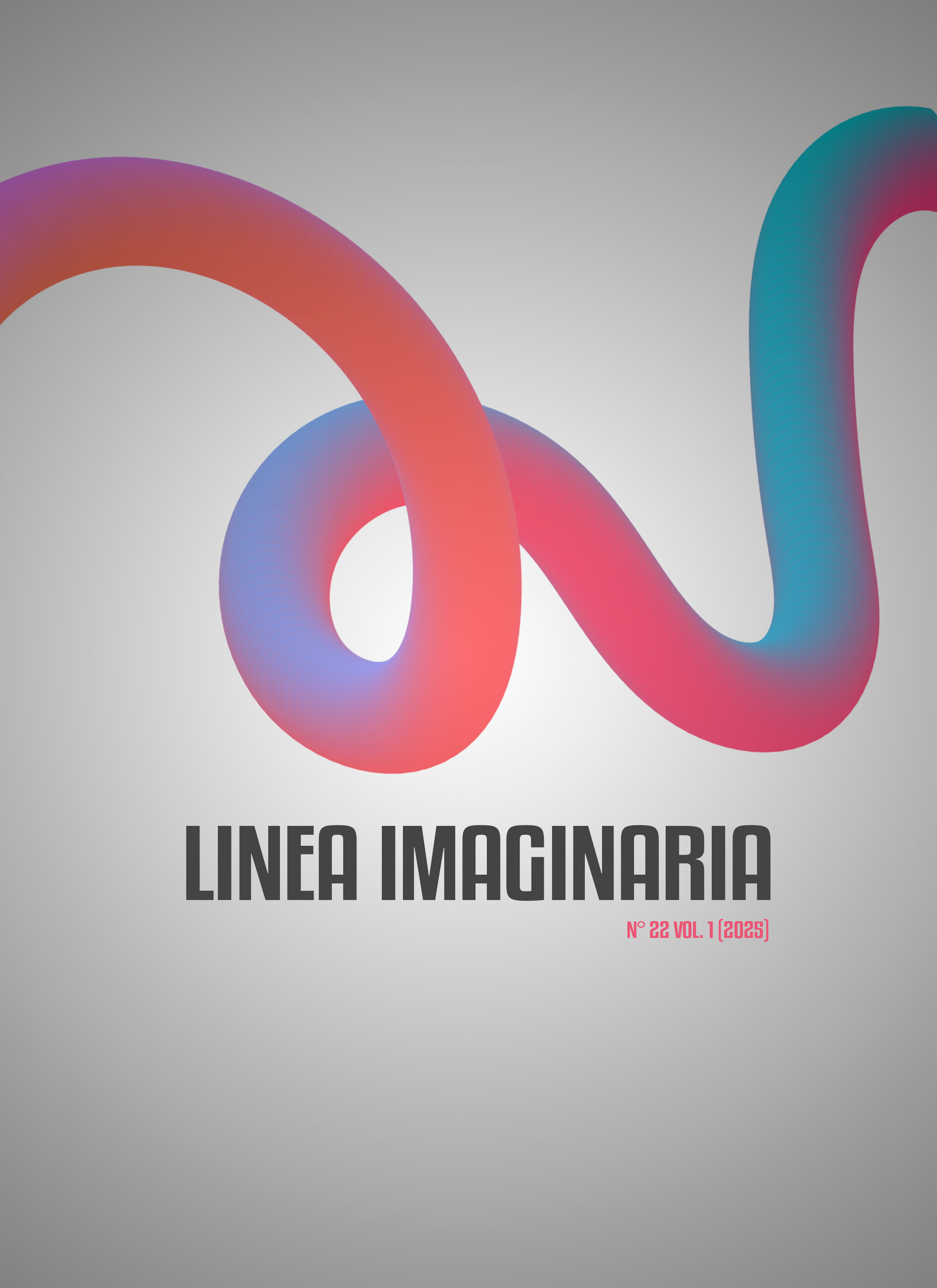TEACHER'S ROLE IN THE INCORPORATION OF ARTIFICIAL INTELLIGENCE IN EDUCATIONAL PROCESSES.
DOI:
https://doi.org/10.56219/lneaimaginaria.v1i22.4153Keywords:
Artificial intelligence, educational process, teaching roleAbstract
The main objective of this essay-type article is to present a reflective explanation about the role of teachers in the face of the incorporation of artificial intelligence in education with a critical stance from various contexts. In certain cases, it is unknown that some educational institutions have technological tools and others lack these elements. Therefore, it is not unknown that there are some educational centers with teachers who lack qualifications in the use and application of Artificial Intelligence in the various educational disciplines.The methodology is based on analyzing this distancing of social interactivity, what we know as personal communication, blurring the context in order to plan actions that lead to thinking about a more analytical society, critical with investigative acumen and innovative skills, and creativity in addressing a variety of issues in today's world. There is an awareness of the lack of empathy for physical reading, coupled with information research, in which the skill of rigorous web consultation has been fading, a situation that has arisen with the emergence and development of artificial intelligence.As part of the conclusions, we will determine the advantages and disadvantages of the development of artificial intelligence that have impacted education. We will explore the interactivity of new generations who now like to solve academic problems with the help of artificial intelligence. This is where the role of teachers in incorporating AI into education becomes highly relevant.
Downloads
References
Ayuso - del Puerto, D., & Prudencia, E. (2022). La inteligencia artificial como recurso educativo durante la formación inicial del profesorado. Universidad de Extremadura. https://www.redalyc.org/journal/3314/331470794017/html/ DOI: https://doi.org/10.5944/ried.25.2.32332
Cepeda, J., & Salcedo, M. (2020). Inteligencia artificial. Universidad Pedagógica y Tecnológica de Colombia. https://www.researchgate.net/publication/344347278_ENSAYO_INTELIGENCIA_ARTIFICIAL
Colombia Aprende. (2022). Aplicaciones de la inteligencia artificial en la educación. https://www.colombiaaprende.edu.co/agenda/tips-y-orientaciones/aplicaciones-de-la-inteligencia-artificial-en-la-educacion
Guerra, L. S. (2022). Del abandono a la permanencia escolar en secundaria. Profesorado. Revista de Currículum y Formación del Profesorado, 26(1), 213–233. DOI: https://doi.org/10.30827/profesorado.v26i1.13535
Hernández, J., & Sánchez, L. (2024). El abordaje de la deserción escolar desde la mirada prometedora de la inteligencia artificial. Línea Imaginaria, 1(19). https://doi.org/10.56219/lneaimaginaria.v1i19.3209 DOI: https://doi.org/10.56219/lneaimaginaria.v1i19.3209
Ley 115. (1994). Ley general de educación colombiana. Diario Oficial No. 41.214.
MinCiencia. (2024). Política nacional de inteligencia artificial. Gobierno de Chile.
MinTIC. (2023). IA en el sector educativo: herramienta valiosa para crear soluciones tecnológicas que respondan a los contextos. Ministerio de Tecnologías de la Información y las Comunicaciones. https://www.mintic.gov.co/portal/inicio/Sala-de-prensa/Noticias/281005:IA-en-el-sector-educativo-herramienta-valiosa-para-crear-soluciones-tecnologicas-que-respondan-a-los-contextos
Ordóñez, L. (2007). El desarrollo tecnológico en la historia. Areté, Revista de Filosofía, 19(2), 187–210. http://www.scielo.org.pe/scielo.php?script=sci_arttext&pid=S1016-913X2007000200001&lng=es&tlng=es DOI: https://doi.org/10.18800/arete.200702.001
Páez, A. (2024). La inteligencia artificial en la gestión virtual del docente. Línea Imaginaria, 1(19). https://doi.org/10.56219/lneaimaginaria.v1i19.3234 DOI: https://doi.org/10.56219/lneaimaginaria.v1i19.3234
Quintero, M., & Tarazona, R. (2024). El impacto de la inteligencia artificial generativa en la educación: desafíos y oportunidades para los docentes del siglo XXI. Línea Imaginaria, 1(19). https://doi.org/10.56219/lneaimaginaria.v1i19.3264 DOI: https://doi.org/10.56219/lneaimaginaria.v1i19.3264
Rondón, G. (2023). El Rol docente en el uso de la Inteligencia Artificial en ambientes educativos. Dialógica, Revista Multidisciplinaria. 20(2), 49-70. https://revistas.upel.edu.ve/index.php/dialogica/article/view/2606/2767 DOI: https://doi.org/10.56219/dialgica.v20i2.2606
Rodríguez-Companioni, O. (2020). La dirección del proceso educativo institucionalizado: apuntes para una conceptualización. EduSol, 20(73), 206–216. http://scielo.sld.cu/scielo.php?script=sci_arttext&pid=S1729-80912020000400206&lng=es&tlng=es
Rogers, C. (s.f.). El proceso educativo según Carl R. Rogers: la igualdad y formación de la persona. https://dialnet.unirioja.es
Rouhiainen, L. (2018). Inteligencia artificial. Alienta Editorial.
Salinas, R. (2024). La cualificación docente en el uso de herramientas tecnológicas y su influencia en las practicas educativas. Ciencia latina Revista científica multidisciplinar. file:///C:/Users/alexandra/Downloads/Dialnet-LaCualificacionDocenteEnElUsoDeHerramientasTecnolo-9565940.pdf DOI: https://doi.org/10.37811/cl_rcm.v8i2.10950
UNESCO (s.f) La inteligencia artificial en la educación. https://www.unesco.org/es/digital-education/artificial-intelligence
Vygotsky, L. S. (1978). Pensamiento y lenguaje [Versión PDF]. https://abacoenred.org/wp-content/uploads/2015/10/Pensamiento-y-Lenguaje-Vigotsky-Lev.pdf
Downloads
Published
How to Cite
Issue
Section
License

This work is licensed under a Creative Commons Attribution-NonCommercial-ShareAlike 4.0 International License.
La revista Línea Imaginaria conserva los derechos patrimoniales (copyright) de las obras publicadas, que favorece y permite la reutilización de los mismos bajo la licencia Creative Commons Atribución-NoComercial-CompartirIgual 4.0 , por lo cual se pueden copiar, usar, difundir, transmitir y exponer públicamente, siempre que se cite la autoría y fuente original de su publicación (revista, editorial, URL y DOI de la obra), no se usen para fines comerciales u onerosos y se mencione la existencia y especificaciones de esta licencia de uso. Si remezcla, transforma o crea a partir del material, debe distribuir su contribución bajo la misma licencia del original.













